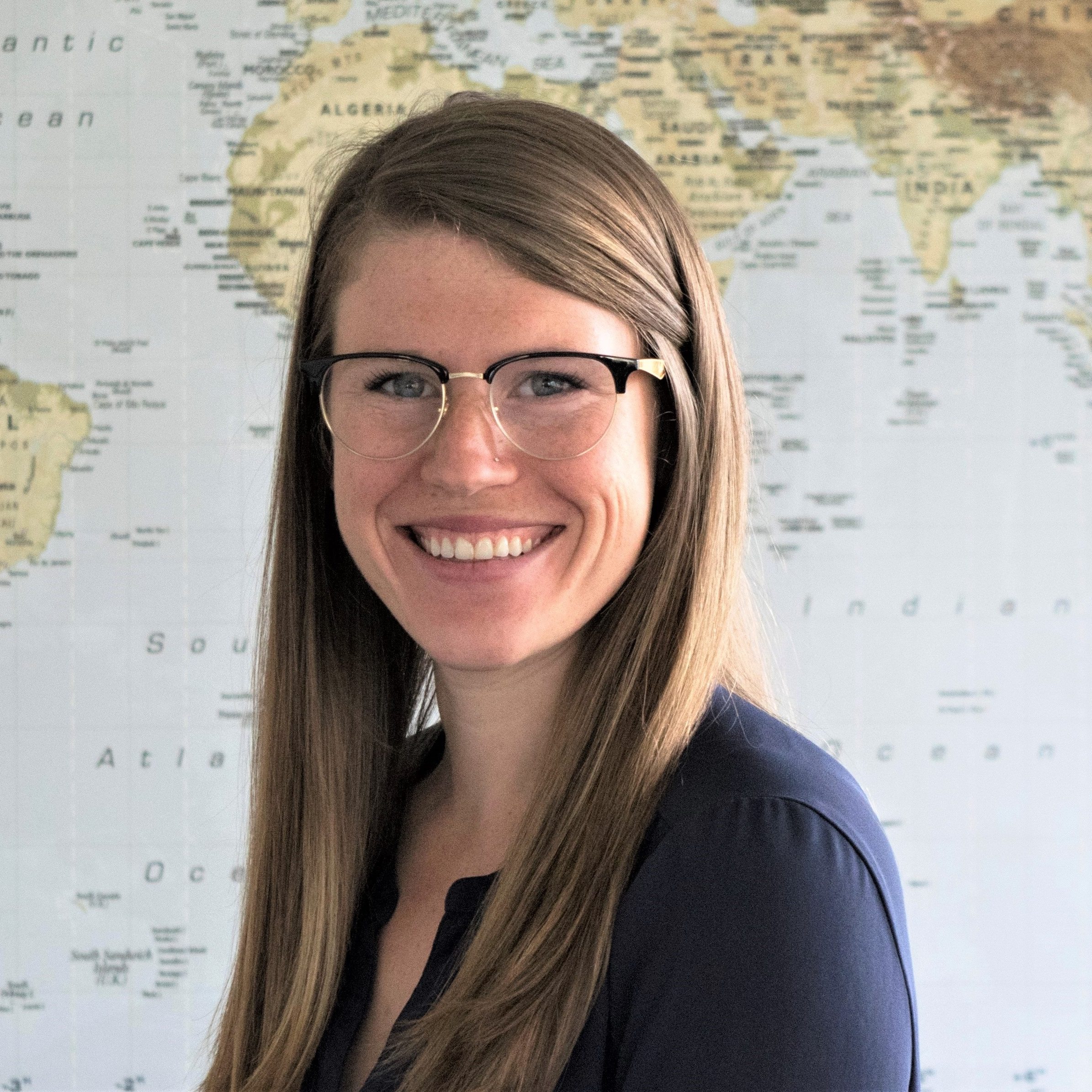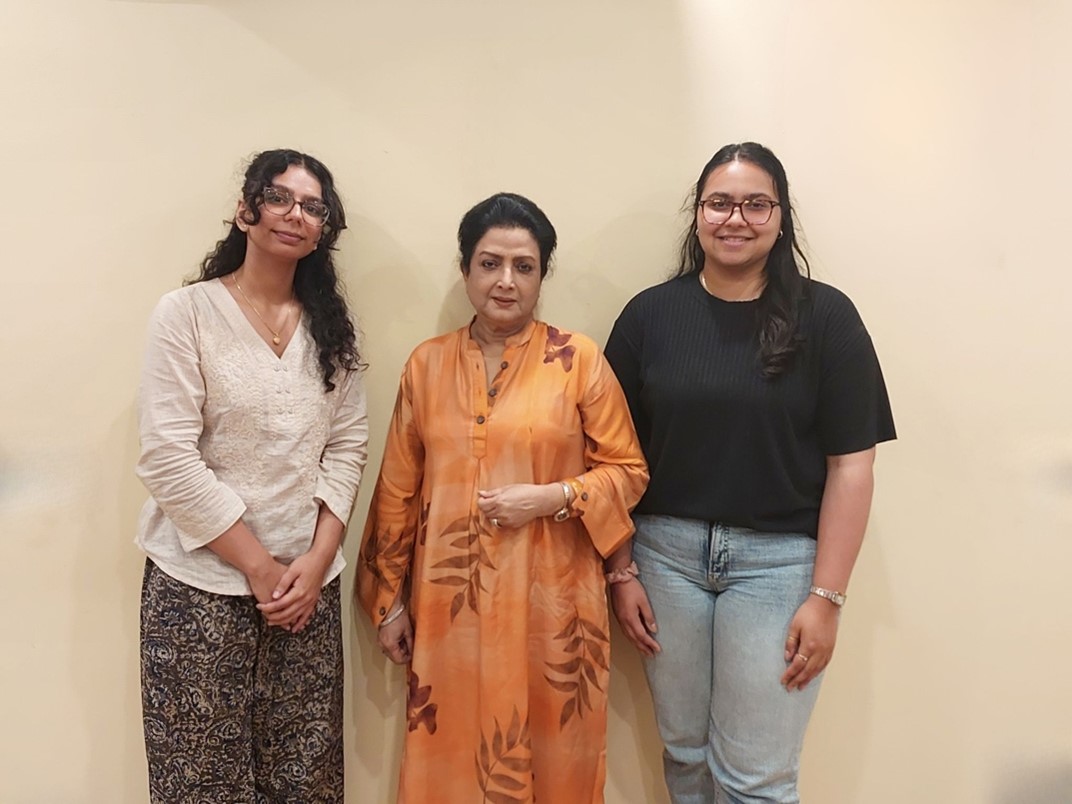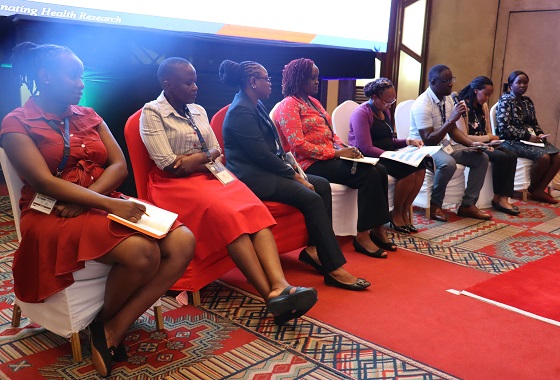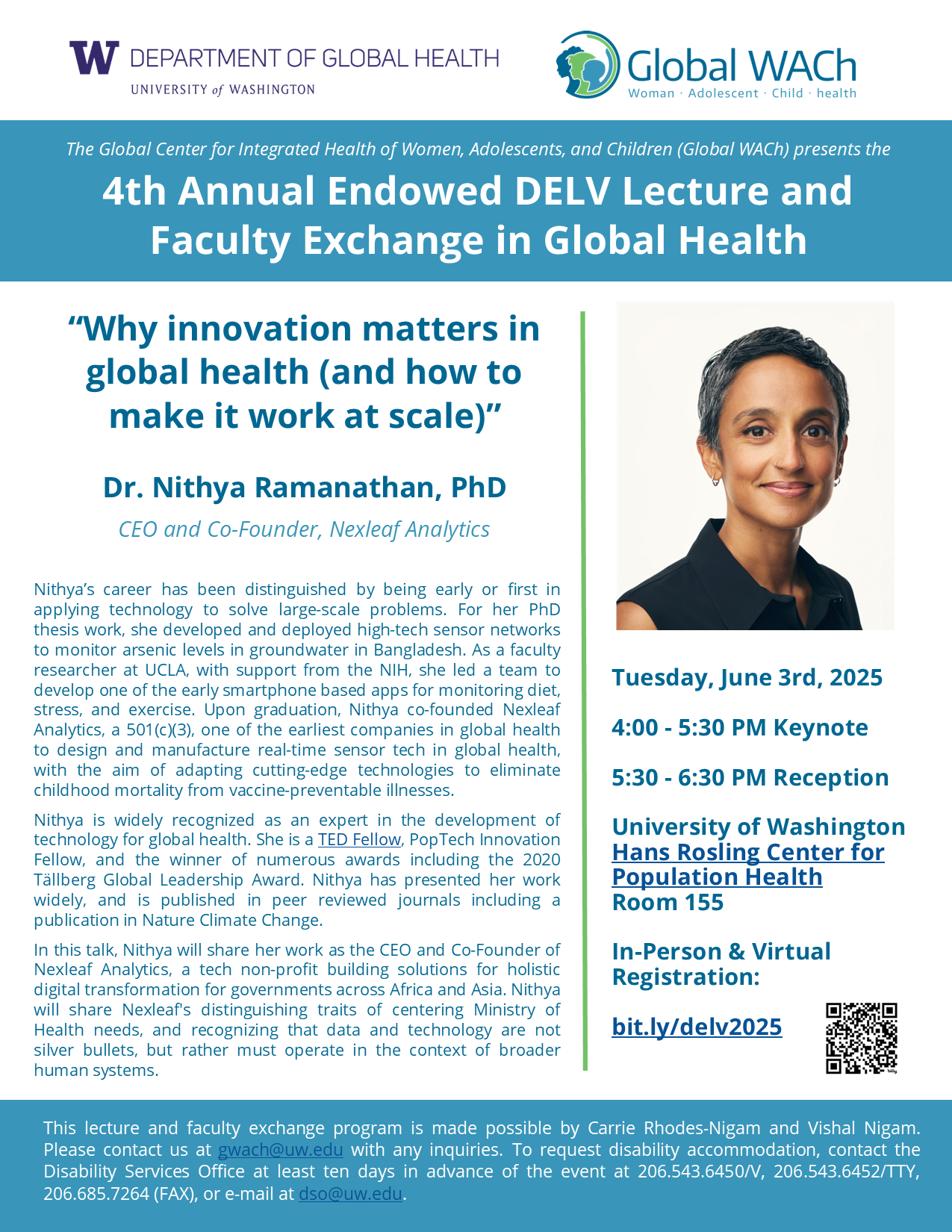News
June 26, 2025
Global WACh staff leads, Kellie List and Alyson Shumays, receive 2025 DGH Outstanding Staff Awards nominations
Categories: Awards
Every year, the Department of Global Health recognizes outstanding staff for their dedication and many contributions to the department. This year’s list of Outstanding Staff Award nominees included two of Global WACh’s leaders who guide, inspire, and empower others to achieve our common goals. Read about their contributions below: (more…)
June 11, 2025
Lisa Orii receives Global Innovation Fund Award to integrate AI in app-based person-centered contraception services in Kenya
Categories: Awards, Certificate Program, Contraception, Family Planning, Research, students
 Congratulations to Lisa Orii, PhD candidate in the School of Computer Science & Engineering and Global WACh Graduate Certificate Program, for receiving a 2025 UW Global Innovation Fund Award. The fund supports transformative cross-college, cross-continent research collaborations and global Husky learning experiences at UW.
Congratulations to Lisa Orii, PhD candidate in the School of Computer Science & Engineering and Global WACh Graduate Certificate Program, for receiving a 2025 UW Global Innovation Fund Award. The fund supports transformative cross-college, cross-continent research collaborations and global Husky learning experiences at UW.
Lisa will work with researchers at UW and Kenya Medical Research Institute (KEMRI) on a project titled, “Co-Design of Chatbots for App-Supported Person-Centered Contraceptive Decision Support among Adolescent Girls and Young Women in Kenya in the Pharmacy Setting.” The research team includes Drs. Elizabeth Harrington (UW Global Health and Obstetrics & Gynecology), Elizabeth Bukusi (KEMRI), Serah Gitome (KEMRI), and Richard Anderson (UW Computer Science & Engineering). (more…)
June 6, 2025
Global WACh hosts annual Student Poster Symposium highlighting graduate student research
Categories: Certificate Program, HIV and Co-Infections, Implementation Science, PrEP, Research, Talks and Events

On Wednesday, June 4th, Global WACh hosted its annual Student Poster Symposium to highlight graduate student research affiliated with our center. Dozens of UW faculty, staff, students attended to learn about 17 students’ projects that fulfilled academic capstone and dissertation requirements, while providing opportunities to gain knowledge and build marketable skillsets in the field of maternal-child health.
The majority of presenters are enrolled in the Global WACh Graduate Certificate Program and are graduating in the 2025 academic year. The certificate program offers opportunities for additional learning about woman, adolescent, and child health topics through 12 credits of coursework and a 90-hour capstone. We wish these students the very best in their future endeavors as public health professionals.
Additional posters featured master and doctoral degree capstones and dissertations that led to major advancements in the scientific field and were featured at the recent Conference on Retroviruses and Opportunistic Infections (CROI) held in San Francisco in March. CROI is considered the world’s leading HIV research meeting that attracts thousands of researchers and clinicians from around the globe – and is a fantastic stage to showcase our emerging early-stage researchers.
See the full list of participating students and their poster titles below. Click here to view the photo gallery courtesy of the Department of Global Health Communications team. (more…)
Listen to 4th Annual Endowed DELV Lecture by Dr. Nithya Ramanathan, Nexleaf Analytics
Categories: Talks and Events

June 5, 2025
Tessa Concepcion receives UW School of Public Health Excellence Award for Outstanding Doctoral Student
 Congratulations to Tessa Concepcion for receiving the UW School of Public Health (SPH)’s 2025 Excellence Award for Outstanding Doctoral Student! The annual award celebrates members of the SPH community for their dedication, service, and many contributions to public health. Tessa recently graduated and trained as a Predoctoral Fellow under Global WACh faculty mentors including Drs. Grace John-Stewart and Jillian Pintye. She has joined the center in a temporary research staff role.
Congratulations to Tessa Concepcion for receiving the UW School of Public Health (SPH)’s 2025 Excellence Award for Outstanding Doctoral Student! The annual award celebrates members of the SPH community for their dedication, service, and many contributions to public health. Tessa recently graduated and trained as a Predoctoral Fellow under Global WACh faculty mentors including Drs. Grace John-Stewart and Jillian Pintye. She has joined the center in a temporary research staff role.
Tessa holds a PhD in Global Health Implementation Science from the University of Washington and an MS in Global Health from Duke University. Her research centers on designing, implementing, and evaluating evidence-based interventions to support the sexual and reproductive health of pregnant and postpartum women in low-resource settings. Her doctoral work examined early implementation factors for integrating long-acting PrEP into antenatal care in Kenya. Tessa previously led a national study on the burden of pediatric surgical conditions in Somaliland and has expertise in mixed methods research, perinatal mental health, mental health systems analysis, and intervention delivery.
May 19, 2025
Register for the 4th Annual Endowed DELV Lecture and Faculty Exchange in Global Health
Categories: Talks and Events
May 15, 2025
Dr. Taylor Hendrixson, UW Pediatrics Assistant Professor, receives 2025 CFAR New Investigator Award
Categories: Awards, Children, Research
 Congratulations to Dr. Taylor Hendrixson, Assistant Professor in UW Pediatrics, for receiving a 2025 UW/Fred Hutch Center for AIDS Research (CFAR) New Investigator Award! The two-year award focuses on supporting early career investigators to conduct independent HIV research and apply for future funding to continue their HIV/AIDS research careers.
Congratulations to Dr. Taylor Hendrixson, Assistant Professor in UW Pediatrics, for receiving a 2025 UW/Fred Hutch Center for AIDS Research (CFAR) New Investigator Award! The two-year award focuses on supporting early career investigators to conduct independent HIV research and apply for future funding to continue their HIV/AIDS research careers.
Dr. Hendrixson is a neonatologist, pediatric infectious disease physician and faculty within the UW Department of Pediatrics. His research has focused on improving maternal and early infant nutrition to optimize growth and improve long-term outcomes in low- and middle-income settings. He works on clinical and clinical-translational trials targeting populations at high-risk for nutritional deficiencies and growth faltering. He is the PI of a K23 award investigating multi-omic interactions of the maternal-breastmilk-infant triad and associations with clinical outcomes among women living with HIV and their infants HIV-exposed uninfected in Kenya.
With support from the new award, Dr. Hendrixson will investigate anemia and iron status in pregnancy among women living with HIV and associations with neurodevelopmental outcomes of children HIV-exposed uninfected to guide future interventional studies. (more…)
Postdoctoral Scholar-Fellow Dr. Jillian Neary receives 2025 CFAR New Investigator Award
Categories: Awards, Children, Research
 Congratulations to Dr. Jillian Neary, Postdoctoral Scholar-Fellow with Global WACh, for receiving a 2025 UW/Fred Hutch Center for AIDS Research (CFAR) New Investigator Award! The two-year award focuses on supporting early career investigators to conduct independent HIV research and apply for future funding to continue their HIV/AIDS research careers.
Congratulations to Dr. Jillian Neary, Postdoctoral Scholar-Fellow with Global WACh, for receiving a 2025 UW/Fred Hutch Center for AIDS Research (CFAR) New Investigator Award! The two-year award focuses on supporting early career investigators to conduct independent HIV research and apply for future funding to continue their HIV/AIDS research careers.
Dr. Neary’s past work focused on strategies to increase pediatric HIV testing and improve HIV care for adolescents with HIV. Recently, her work focused on molecular epidemiology including HIV viral control among children with HIV and biomarkers of biological aging among children who were exposed to HIV in utero.
With support from the new award, she plans to explore whether breastfeeding and human milk oligosaccharide composition are associated with child telomere length (TL) among children in Kenya who were exposed to HIV in utero. The evidence fills an important need to further understand how breastfeeding may influence short- and long-term health outcomes.
April 25, 2025
Global WACh team supports Sukarya to build a data-driven adolescent health program in Rajasthan
Categories: Research
In August 2024, team members from Global WACh at the University of Washington had the opportunity to visit India as part of a research partnership with Sukarya, a non-governmental organization focused on improving health outcomes and promoting gender equity in India’s slum communities.

Pictured from left to right: Simran Purewal (Student Assistant, UW), Meera Satpathy (Founder and Chairperson, Sukarya), Rishika Mohanty (Project Coordinator, UW)
Sukarya was founded in 1998 by its chairperson and health innovator Ms. Meera Satpathy, and strives to improve the well-being of women, children and adolescents through delivering critical health, equity and gender-based programs. The organization has benefitted more than 6 million people in over 650 villages and 120 slums in rural areas of Haryan, Rajasthan, Delhi and Gurugram. Since its founding, Sukarya has won many awards for its impactful work, and is ranked in the Top 10 Trusted NGOs in India by the Fortune Leadership Awards.
In 2024, Drs. Tickell and Wagner joined forces with Sukarya to win a Global Innovation Fund (GIF) supporting the creation of a bi-directional partnerships between UW and Sukarya. With this funding, the UW team has supported Sukarya in design as innovative Social Behavior Change Communication (SBCC) adolescent health program drive by local data. Members of UW were able to travel to New Delhi, India to conduct a data needs assessment for Sukarya’s SBCC program. This initiative aims to foster positive changes in knowledge, attitudes, and behaviors related to personal health, hygiene, nutrition, menstrual health, sexual health, family planning, mental health, and substance abuse among adolescents. The program’s goal is to empower adolescent with the knowledge and tools they need to make informed decisions about their health and well-being. The goal of the data needs assessment was to determine the optimal method of digital data collection to track participants changes in knowledge, attitudes, and behaviors. (more…)
MAMMS-IYCF study team wins Top Abstract Award at the 2025 KEMRI Annual Scientific and Research Conference
Categories: Awards, Gut Health and Child Survival, HIV, Research

MAMMS-IYCF study team members participated in a live Q&A session at KASH 2025.
“A pilot study to develop and test a two-way SMS Platform to recognize and prevent wasting among HIV-infected and HIV-exposed uninfected children in Kenya” summarized how Dr. Edemba and a collaborative team from UW and Kenya Medical Research Institute adapted the Maternally Administrated Malnutrition Monitoring System (MAMMS) mHealth platform – in which caregivers measure their child’s mid-upper arm circumference on a weekly basis and communicate color-coded findings with healthcare workers via SMS text message – to include messages on infant and young child feeding (IYCF). The study team integrated these tailored messages and administered them to caregivers seeking care for children exposed to HIV at the Homa Boy and Migroi County referral hospitals over a two year period. (more…)
Next page
